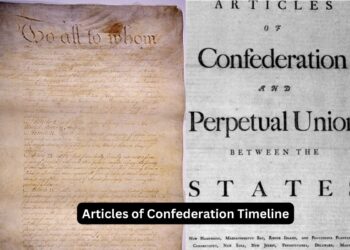Essay by George Orwell called “Shooting an Elephant” was originally printed in 1936. Orwell’s firsthand experiences as a British imperial police officer in Burma (now Myanmar) while Burma was a British colony are reflected in the essay. In the article, Orwell describes a situation in which he had to shoot an elephant that had run amok and was wreaking devastation in a village.
Shooting an Elephant Essay Summary By George Orwell-The article examines imperialism, power, and the ethical difficulties that those in positions of authority must grapple with. Orwell starts his essay by discussing the repressive character of British colonial authority in Burma and the locals’ animosity towards their colonial overlords. He describes how the Burmese people frequently resented him as a police officer.
Shooting an Elephant Essay Summary By George Orwell-Orwell learning of an elephant’s escape from its owner and rampage through a bazaar is the main event that drives the essay. Orwell first has no plans to shoot the elephant, but he eventually feels driven to do so because of pressure from the locals who want him to assert his authority.
He understands that he must kill the elephant in order to protect his reputation as an imperial commander and to stop the mob from making fun of him.
Also Read:-
- Discuss the theme of the individual versus society in George Orwell’s Animal Farm
- Discuss the theme of power in George Orwell’s Animal Farm
- Discuss the theme of power in George Orwell’s Animal Farm
Shooting an Elephant Essay Summary By George Orwell-Orwell talks about his moral problem and internal strife. Although he is aware that the elephant is no longer dangerous and could be easily captured, he nevertheless feels the need to shoot it in order to meet the expectations of the Burmese people. He understands the injustice of the circumstance and the folly of colonialism, where the colonisers are compelled to behave contrary to their own morals in order to maintain the oppressive system.
Shooting an Elephant Essay Summary By George Orwell-Orwell kills the elephant in the end, but not without feeling intense shame and regret. He muses on how damaging imperialism is and how it dehumanises both those who are colonised and those who are colonisers. The killing of the elephant is a metaphor for the cruel deeds carried out in the name of colonial power.
Also Read:-
Shooting an Elephant Essay Summary By George Orwell-“Shooting an Elephant” is a potent indictment of imperialism that also examines the ethical dilemmas that those who are subject to oppressive institutions must deal with.
The complexity of power and the loss of personal agency in such circumstances are better understood thanks to Orwell’s personal experience. Due to the essay’s analysis of imperialism, morality, and the human cost of empire, it is still researched and discussed extensively.
Shooting an Elephant Essay Summary By George Orwell-George Orwell, born Eric Arthur Blair on June 25, 1903, and died on January 21, 1950, was an influential British writer and journalist. He is best known for his dystopian novels “Nineteen Eighty-Four” and “Animal Farm,” which have become literary classics and continue to be widely studied and discussed.
Shooting an Elephant Essay Summary By George Orwell-Orwell was born in Motihari, Bihar, India, during the time when it was part of British India. He later moved to England with his family and attended schools there. Orwell’s experiences as a colonial police officer in Burma (now Myanmar) deeply influenced his writing, particularly his views on imperialism and oppression.
Orwell’s works often explore themes such as totalitarianism, social injustice, political corruption, and the dangers of authoritarianism. His writing style is characterized by clarity, directness, and a commitment to truth-telling. Orwell believed in the power of language and its potential to shape and manipulate public opinion.
Shooting an Elephant Essay Summary By George Orwell-In addition to his novels, Orwell wrote numerous essays, articles, and journalistic pieces, addressing a wide range of social and political issues of his time. Some of his notable essays include “Shooting an Elephant,” “Politics and the English Language,” and “A Hanging.” Orwell’s non-fiction works reflect his deep concern for social justice and his commitment to exposing the abuses of power.
George Orwell’s contributions to literature and his insightful social and political commentary have had a lasting impact. His works continue to resonate with readers, inspiring critical thinking and raising important questions about the nature of power, truth, and the individual’s role in society.
George Orwell’s essay “Shooting an Elephant” offers a thought-provoking exploration of the moral dilemmas and internal conflicts faced by individuals in positions of authority within oppressive systems. Through his personal experiences as a British imperial police officer in Burma, Orwell exposes the injustices and absurdities of colonialism.
Shooting an Elephant Essay Summary By George Orwell-The essay highlights the oppressive nature of British rule in Burma and the resentment it generated among the local population. Orwell’s decision to shoot the rogue elephant becomes a metaphor for the larger dynamics of power and control at play in colonial societies.
He grapples with the expectations imposed upon him as an imperial officer and the clash between his personal morality and the demands of his role.
Shooting an Elephant Essay Summary By George Orwell-Orwell’s realization of the dehumanizing effects of imperialism extends beyond the colonized to the colonizers themselves. The act of shooting the elephant symbolizes the moral compromises forced upon individuals within oppressive systems and the erosion of their humanity.
Shooting an Elephant Essay Summary By George Orwell-“Shooting an Elephant” remains relevant and impactful today, as it encourages reflection on the abuse of power, the ethics of authority, and the consequences of acquiescing to societal expectations. Orwell’s essay continues to serve as a cautionary tale about the dangers of unchecked imperialism and the moral compromises it entails.
FAQ.
Q: When was “Shooting an Elephant” published?
A: “Shooting an Elephant” was first published in 1936.
Q: What is the main theme of “Shooting an Elephant”?
A: The main themes of “Shooting an Elephant” include imperialism, power dynamics, moral dilemmas, the dehumanizing effects of oppression, and the clash between personal morality and societal expectations.
Q: What does the shooting of the elephant symbolize in the essay?
A: The shooting of the elephant symbolizes the destructive and oppressive nature of imperialism, the moral compromises forced upon individuals within oppressive systems, and the loss of humanity endured by both the colonized and the colonizers.
Q: Why does Orwell shoot the elephant?
A: Orwell shoots the elephant primarily due to the pressure from the local crowd and the expectations placed upon him as an imperial officer. He feels compelled to maintain his authority and avoid being ridiculed by the Burmese people.
Q: What is the significance of the essay “Shooting an Elephant”?
A: “Shooting an Elephant” is significant for its critique of imperialism, its exploration of moral dilemmas faced by individuals in positions of authority, and its examination of the dehumanizing effects of oppressive systems. It remains a powerful and thought-provoking piece of literature that raises questions about power, ethics, and the consequences of colonialism.
















